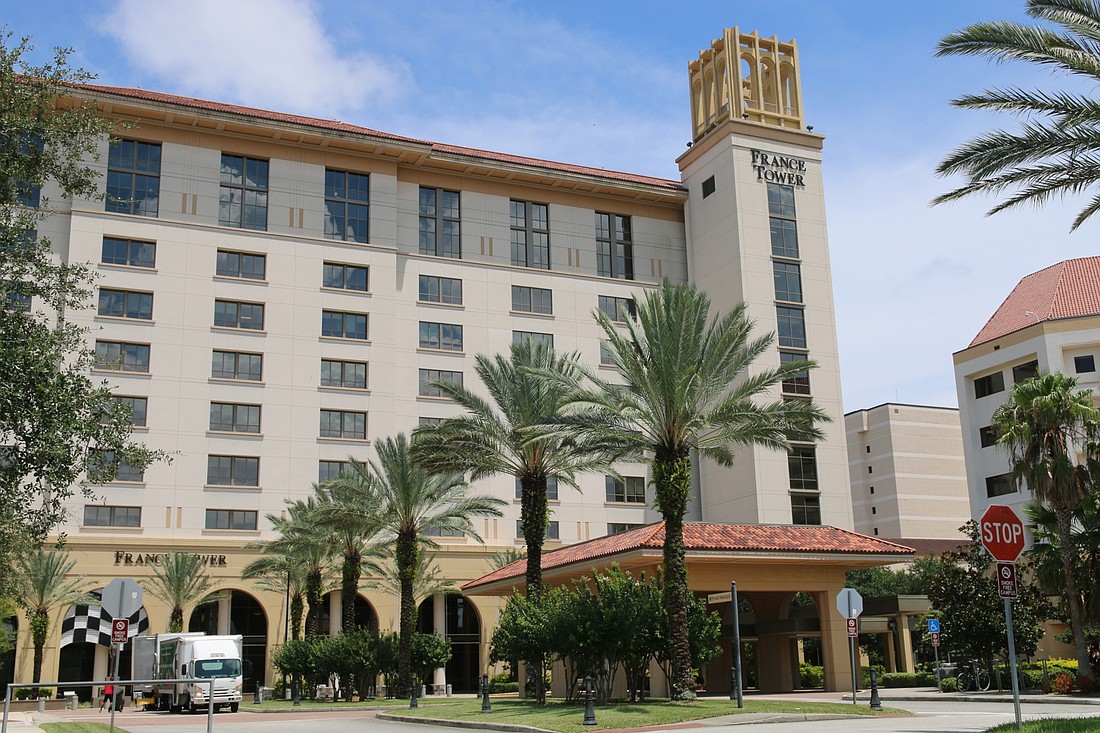- January 22, 2025
-
-
Loading

Loading

by: Mia Striegel
Contributing writer
About 73% of hospitals across Florida were expecting a critical staffing shortage in mid-September, according to the Florida Hospital Association, and Halifax Health Medical Center is one of many in the state that is still dealing with a lack of staff through November.
“It is the biggest challenge right now,” said Alberto Tineo, senior vice president and hospital chief operating officer. “It will remain an issue across the state and country. In nursing we have over 130 positions we are looking for. We are also needing radiology, respiratory, cardiology and other hospital positions.”
Tineo said that the hospital had a staffing shortage before COVID-19, but the pandemic deepened it. Hospital workers who were looking to retire in a few years sped up those plans and left early.
What’s happening at Halifax reflects a national trend. In a recent survey conducted by the American Association of Critical Care Nurses, two-thirds of nurses said they feel their pandemic experiences have led them to consider leaving the profession.
“I have heard from my nurse practitioners. They’re like, ‘I wonder how much real estate pays,’ or, ‘I wonder what I could do if I didn’t do this.’ I don’t know that they would still formally leave, but it certainly makes people think,” said Jeannine Waterman, a nurse practitioner manager with the Halifax Health, hospice and palliative care team.
Waterman has been at Halifax for over 27 years.
“I’m not going anywhere,” Waterman said. “I work with a lot of young nurses who are 20, 22, 24. And they were like, ‘What am I doing?’ To come out of your nursing career into this is really hard. And a lot of them haven’t dealt with death and dying in their normal life, much less coming to work and dealing with it every day. It’s hard for them emotionally.”
Nurses are not just considering leaving the profession, some are also looking into becoming a travel nurse. They work for short periods of time at hospitals around the country to fill positions. This has worsened the staffing issue. According to Indeed, travel nurses make approximately 20% more than all registered nurses.
“A lot of where the nursing shortage is coming from in terms of what’s happening in hospitals right now is they’re offering a lot of money for nurses to go travel and take assignments in other areas,” Waterman said, “which is pulling staff out of our normal staff, out of the hospital.”
Halifax Health is trying its best to retain and recruit staff. Tineo said the hospital is making sure nurses’ benefits and compensation are competitive, and Halifax is getting creative with sign-on bonuses.
One Halifax hospital administrator said the level and quality of patient care has not been negatively impacted by the staff shortage, but it has impacted the hospital as an organization.
Lindsay Martin, director of nursing for emergency and trauma services at Halifax, said that she doesn’t believe the staffing shortage is affecting patient care but does think it has affected the flow of patients in the organization. Martin said this “leads to upset patients not being able to get to their next step in the process as quickly as we would all like. This causes stress on the staff as well. Patients are sicker than I’ve ever seen.”
Nursing is not the only area that is short-staffed. Merrilee Felkel, a staff radiographer at Halifax, is feeling the effects as well.
“It’s a little disheartening, but not surprising,” Felkel said. “And it doesn’t matter because we’re here to do the job we signed up for and people need care. And it just means sometimes we have to be stretched a little thinner or work a little harder, but you still go in with the attitude that you’re going to do a good job.”
Being short-staffed doesn’t dampen Felkel’s spirit.
“A lot of things can get you through a day, particularly if you’re having a tough day,” Felkel said. “But always the patients are what keep me going and inspire me — the reason I went into this business. It’s the reason I’ve stayed in it for so many years.”